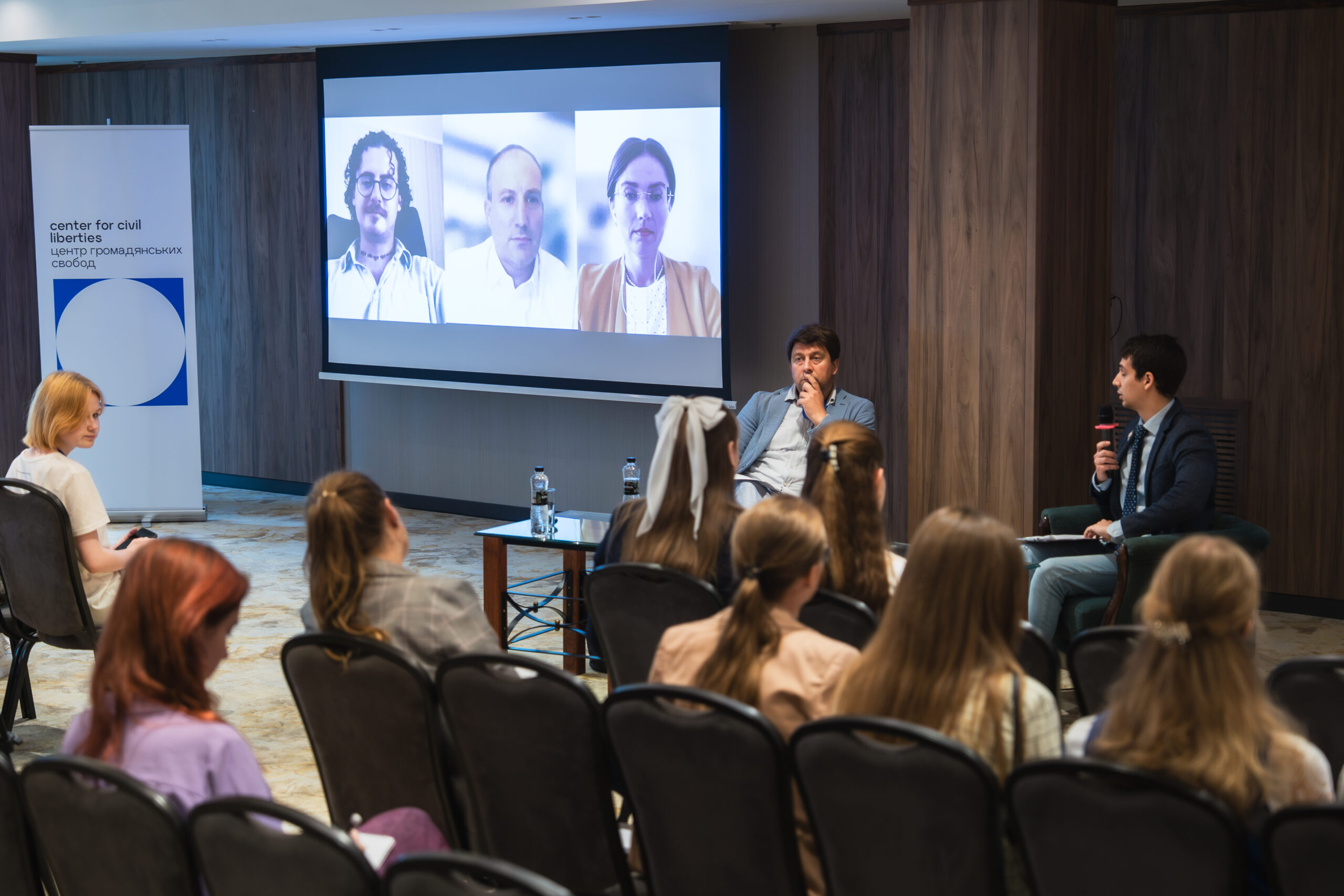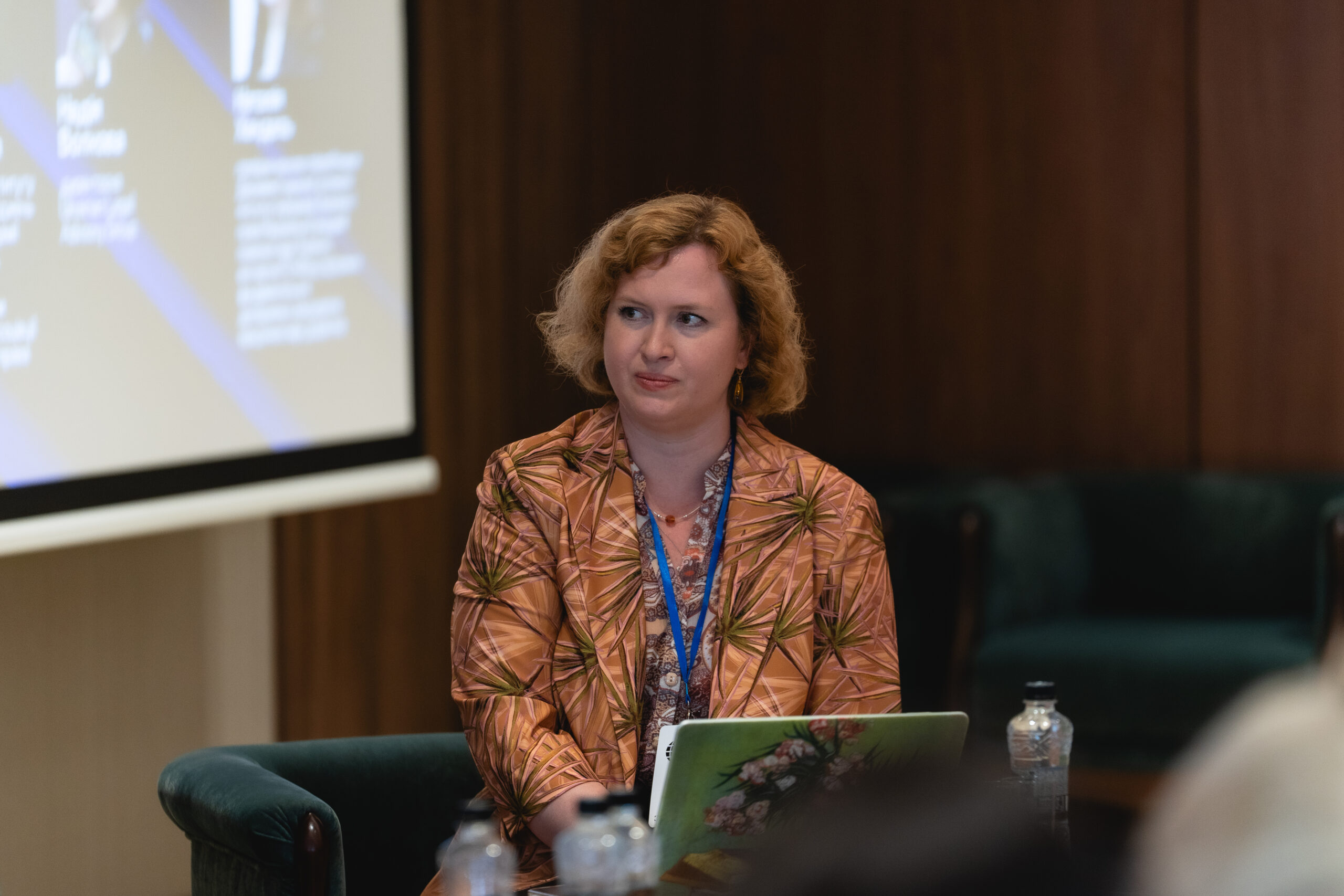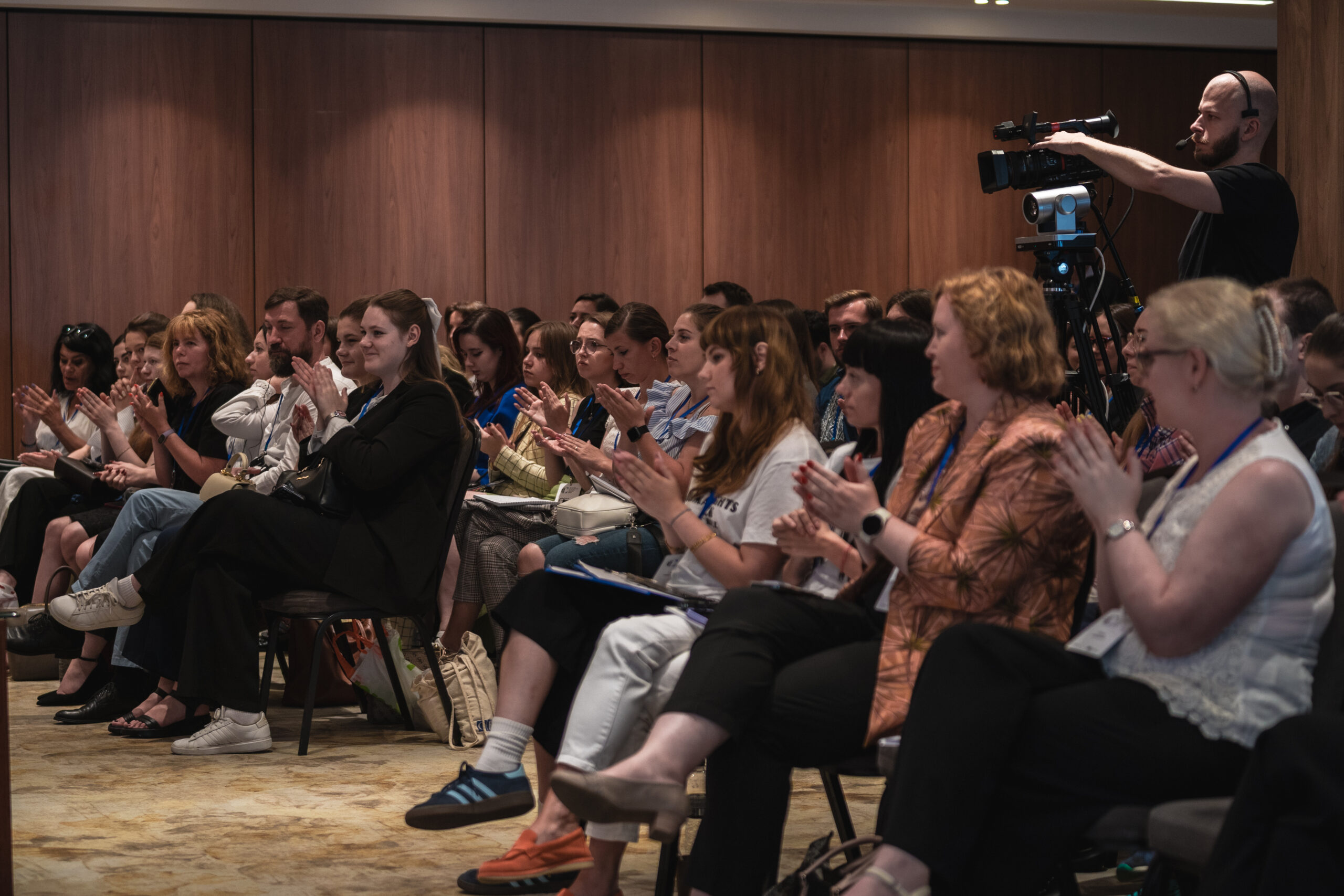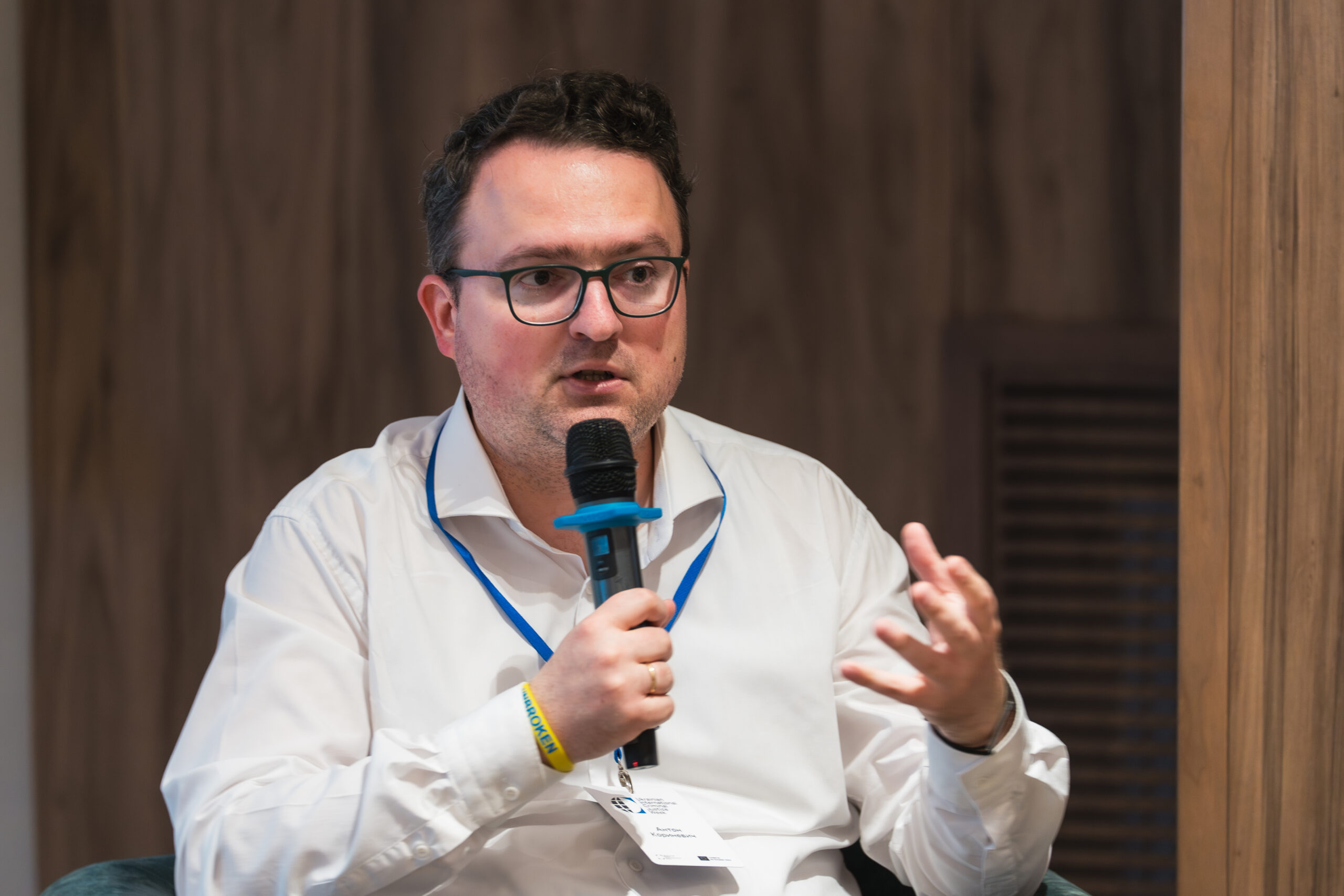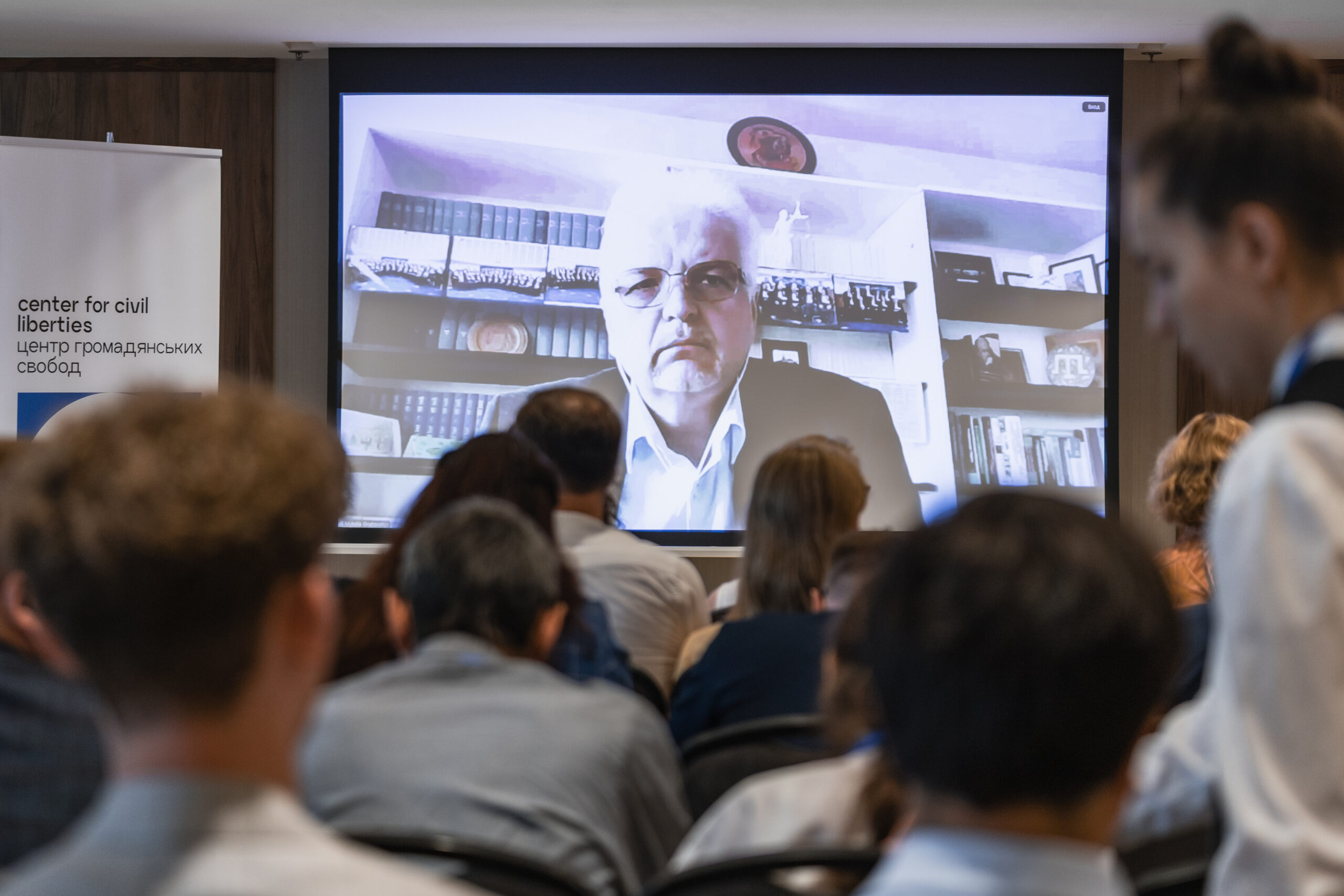July 14-18, Kyiv saw the Ukrainian International Criminal Justice Week, organized by the Center for Civil Liberties. During one of the discussions at the conference “Justice 2030: Scenarios for Ukraine,” lawyers, international experts, representatives of civil society organizations, and governmental institutions gathered around an important question: Does the current definition of the crime of genocide correspond to the modern realities of mass violance and the destruction of Ukrainians? And whether Russian aggression against Ukraine can stimulate changes in the definition of the crime of genocide in international law?
The panel was moderated by Valentyn Serdiuk, an analyst and lawyer at the Center for Civil Liberties doctoral candidate at the Department of International Law of Yaroslav Mudryi National Law University. Speakers: Marko Milanovych, Professor of International Law at the Department of Law, University of Reading; Zakhar Tropin, Associate Professor of the Department of International Law at Taras Shevchenko National University of Kyiv; Kateryna Busol, Associate Professor at the National University of Kyiv-Mohyla Academy and the British Institute of International Law; Maksym Vishchyk, Senior PhD candidate at the Department of International and European Law, National University of Kyiv-Mohyla Academy.
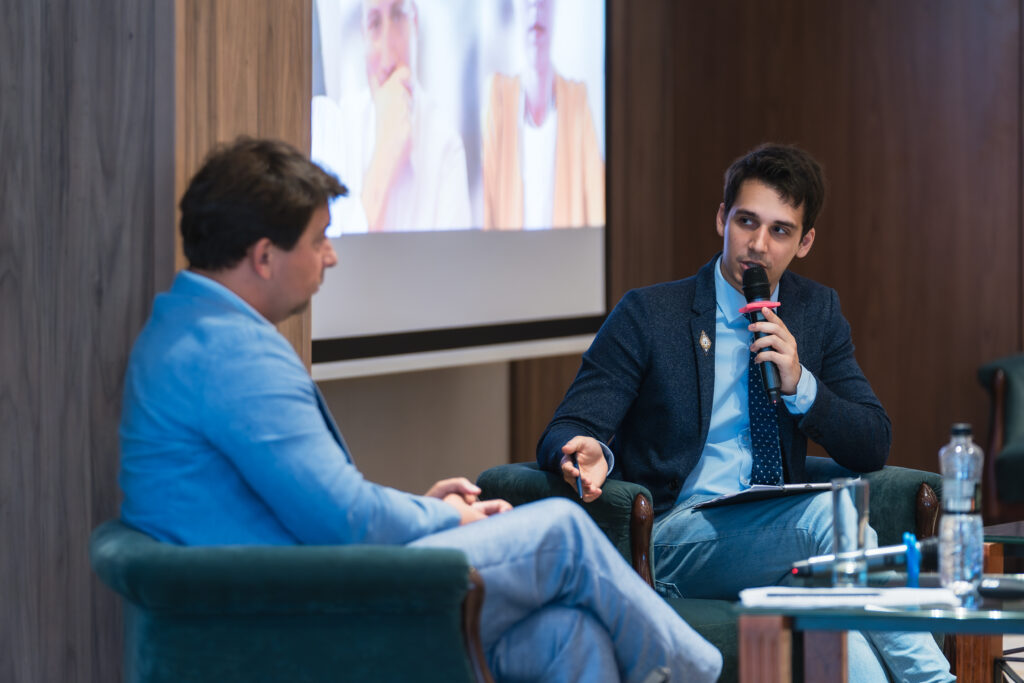
During the panel, international and Ukrainian experts agreed that while changing the very definition of genocide in the 1948 Genocide Convention is unlikely, Ukraine could play a key role in transforming the approach to proving the crime of genocide.
Marko Milanovych explained that the current definition is the result of a political compromise in 1948 and no longer reflects the modern nature of the crime of genocide. It is almost impossible to formally change the definition due to the complexity of revising international treaties and reaching a consensus. However, the Russian aggression against Ukraine could become a catalyst for the evolution of judicial practice. In particular, courts may weaken the approach of providing dolus specialis, which is the most difficult element in defining the crime of genocide. What is more important, in his opinion, is not so much the formal expansion of the term, but rather the transformation of the approach to proving both the special intent and mens rea in the commission of genocide.
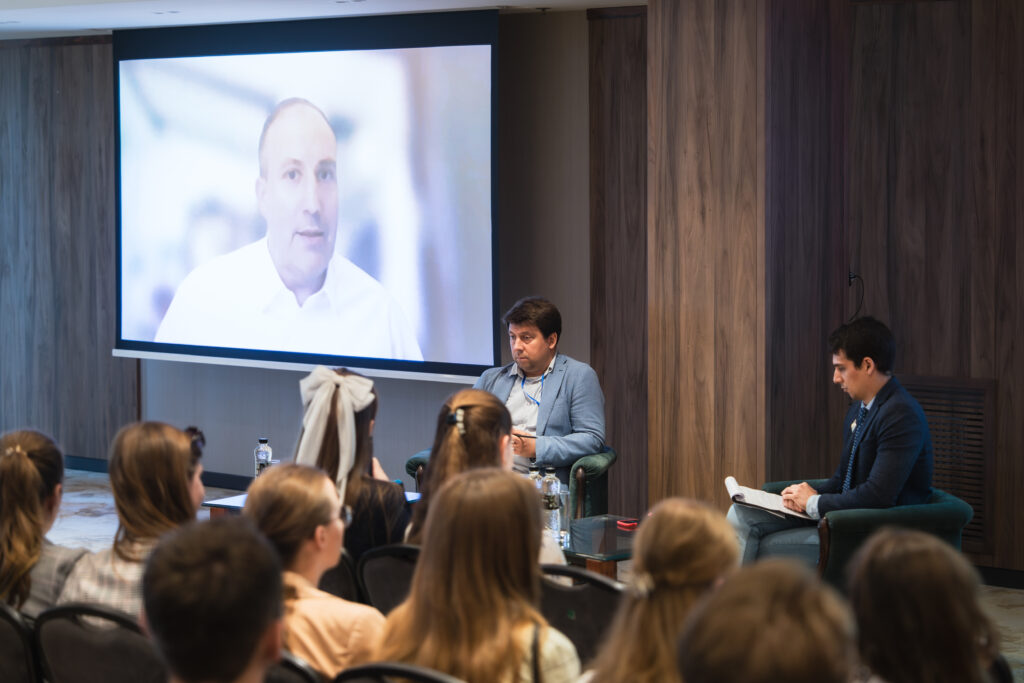
Zakhar Tropin agreed that the formal change in the definition of the crime of genocide is unlikely, but emphasized the potential development of the application of the current concept of genocide. He noted two important aspects: the mass deportation of Ukrainian children to Russia and the need for new approaches to proving special intent. According to Tropin, the systematic action of Russia regarding the forced deportation and assimilation of children may create precedents for expanding the interpretation of genocide in the practice of international courts. He noted that although the academic doctrine has so far poorly developed this aspect, the Ukrainian case presents an opportunity to develop a relevant precedent in international law. Indoctrination, concealment and alteration of personal data, systematic adoption practices, and rewriting of identity – all of these should form a new line of evidence.
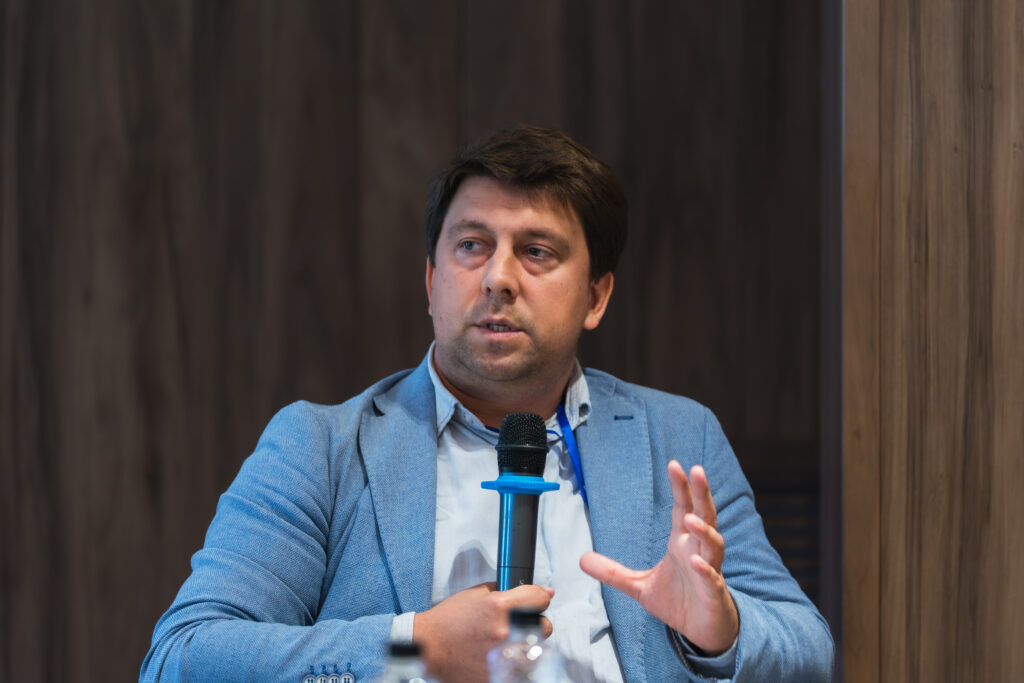
Maksym Vishchyk drew attention to the importance of a precise definition of a “national group”. He explained the difference between the two approaches to interpreting protected groups – the aggregationist approach (combining different identities) and the distinctionist approach (treating each group separately). Vishchyk emphasized that it is necessary to understand what “destruction of a nation” means in modern conditions, stressing that cultural and social destruction can significantly affect the existence of a group even without direct physical destruction. The expert added that it is critical for Ukraine to develop an argument that will allow defending the national group of Ukrainians as an object of the crime of genocide.
Kateryna Busol emphasized the importance of including contextual, particularly cultural, aspects when documenting and qualifying crimes. Deportations, “cultural cleansing” of occupied territories, destruction of the school system – all of these should be seen not only as war crimes but also as components of a systematic effort to destroy a national group. Busol also stressed the importance of carefully documenting public calls for genocide by Russian officials as they can serve as evidence of special intent.
The discussion included views on how events in other regions, particularly in Gaza, affect international criminal and judicial practices in the context of the crime of genocide.
The panel participants agreed that formal changes in the definition of the crime of genocide are unlikely in the near future due to the political influence and the difficulty of reaching international consensus. However, they emphasized the importance of changing approaches in applying the current definition, especially considering the Ukrainian experience. It is critical for Ukraine to continue thorough documentation of crimes and improve the national judiciary to create precedents that could later influence the practice of international courts. The speakers noted that amid geopolitical polarization, attention to Ukraine decreases, but consistent and professional documentation of crimes, investigation and dissemination of cases in Ukraine can impact the global doctrine.
What is next?
Ukraine has a unique opportunity to set a new framework for international criminal law. However, this requires not only political will, but also:
- systemic coordination of national documentation with international partners;
- expert support for cases in national and international jurisdictions;
- joint international advocacy with partners for reforming concepts in the UN and ICC;
- synergy between human rights defenders and diplomats.
Changes in international law do not start with new conventions, they start with new approaches to interpreting existing norms. Today, Ukraine is at the forefront of this change. International support on both political and legal fronts must be more active in order to end the impunity of international crimes committed by Russia.
Written by Nataliya Bolshova, volunteer at the Center for Civil Liberties.

